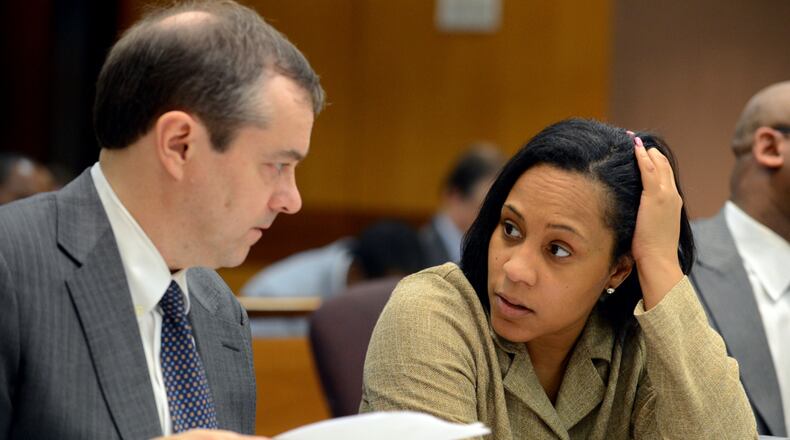An Atlanta civil litigator widely considered to be the state’s leading authority on racketeering and conspiracy law has joined the Fulton County district attorney’s office in an advisory capacity.
John Floyd, who played a pivotal role in two of the biggest local trials of the past 20 years, will serve as a special assistant district attorney, said Jeff DiSantis, spokesman for Fulton DA Fani Willis, said Saturday.
In letters sent to top state officials last month asking them to preserve documents related to their post-election conversations with former President Donald Trump, Willis said she was investigating a number of state crimes, including conspiracy and racketeering. DiSantis said Floyd was not hired specifically for the Trump case but as a “resource on racketeering for the office.”
Willis has transformed the anti-corruption unit since assuming power in January, replacing all but one investigator who served under her predecessor, Paul Howard.
Floyd was a member of the prosecution teams that secured guilty verdicts on RICO charges against former DeKalb County Sheriff Sidney Dorsey, convicted of ordering the murder of his political opponent, Derwin Brown, and against several teachers and administrators involved in the Atlanta Public Schools cheating scandal.
The Trump probe centers on the former president’s Jan. 2 phone call to Brad Raffensperger in which he pleaded with Georgia’s secretary of state to “find” enough votes to overturn Joe Biden’s narrow victory in November.
Willis is also looking into a call between Raffensperger and Trump ally U.S. Sen. Lindsey Graham, R-S.C.; the sudden resignation of BJ Pak as U.S. attorney for the Northern District of Georgia; and false claims made by Trump attorney Rudy Giuliani during a hearing before the Georgia Senate Judiciary Committee.
The Fulton DA has worked with Floyd before. She served as lead prosecutor in the 2014-15 APS trial, leaning heavily on his RICO expertise.
The RICO law was enacted by the federal government in 1970 to fight corruption and organized crime. But Georgia’s version, passed in 1980, has been used much more liberally by prosecutors.
In his closing argument during the APS trial, Floyd explained it was not necessary to demonstrate an organized crime connection to prove racketeering. Prosecutors had shown APS defendants knowingly joined into a conspiracy and used the Atlanta school system as a criminal enterprise, he said. And they shared a common goal: to cheat and to cover up the cheating, which, Floyd concluded, constituted a racketeering conspiracy.
Legal experts are divided as to whether RICO will aid or complicate any potential prosecution of the former president and his allies.
Georgia State University law professor Clark Cunningham told the AJC recently he believes Willis has the makings of a “pretty compelling narrative of a conspiracy” to commit election fraud.
But Don Samuel, one of Atlanta’s top criminal defense attorneys, says RICO “always just adds burdens to the prosecution’s case.”
“If, in fact, they’re going to try and show that individual acts of election fraud occurred, why complicate the matter by going with a RICO case?” Samuel told the AJC.
Willis has said it’s not a given her investigation will lead to criminal charges. Prosecutors began seeking subpoenas for documents and witnesses related to the case this past week.
About the Author
The Latest
Featured



